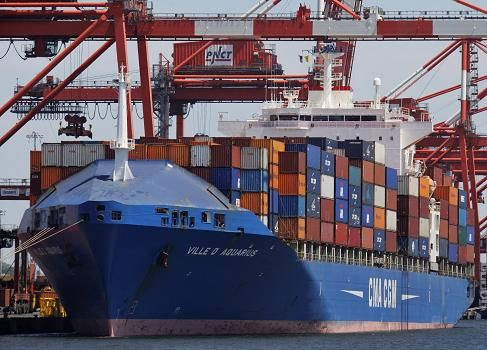Asia And Domestic U.S. Companies Could Lose Most From Eventual EU-US Trade Deal: Top Trade Insurance Executive

Asian nations and domestic U.S. businesses could lose the most from an eventual free trade zone between the European Union and the United States, according to a top trade insurance executive.
“If you’re only a U.S. exporter, you can’t lose anything, because they’re only making exporting easier,” said Euler Hermes CEO Jochen Duemler in a phone interview with International Business Times.
“But if you have significant domestic business, I don’t know … I’d be more afraid that I lose out on my domestic market share,” he continued.
Euler Hermes insures U.S. and overseas companies doing international trade against certain losses, like when customers or business partners fail to pay for services as agreed. Euler Hermes is a top global insurer for export and trade credit.
Duemler also sees Asia and other emerging economies as potentially worse off, if a comprehensive free trade pact between the U.S. and the EU is finalized.
If the two giant trading parties harmonize their regulatory and technical standards, a key aim of the talks, the result could be a global gold standard for trade. That could leave emerging markets struggling to compete, Duemler said.
America and Europe would together represent about 40 percent of global GDP through their partnership, said Duemler, meaning that their mutual trade standards will have to be taken seriously by other nations.
“Asia may be the part of the world not benefiting from this,” said Duemler. U.S. producers could gain a competitive edge against rivals like China, which is already seeing declining productivity, if they benefit from more and cheaper business with Europe.
A previous University of Munich projection found that the United States stands to gain significantly more than the EU if any trade deal goes through, with emerging markets and other continents badly impacted.
One potential end date for the ongoing negotiations is November 2014, when the European Commission ends its current term, though many observers following the debate find that timeframe optimistic.
If finalized, the deal will strengthen what is already the largest bilateral trade relationship in the world. It’ll also be the biggest free trade deal ever.
Agriculture and textiles are sensitive subjects where negotiations over import duties are likely to be tough. Other touchy topics like defense and audiovisual material are already excluded from the talks.
U.S. exporters aren’t yet worried about the ongoing negotiations, said Duemler, though they follow it closely and sometimes lobby politicians.
A trade deal could also help revive European economies like Spain, Greece, and Italy, with Euler Hermes projecting a 0.4 to 0.7 percent increase in yearly GDP growth for the EU if the deal goes through.
The U.S. has traditionally not emphasized exports, noted Duemler.
“What we know traditionally is that the U.S. has never been extremely export focused in the past,” he said. But if negotiations succeed, U.S. companies would be more willing and prepared to venture into European markets, he said.
But that, in turn, could have unintended and unwelcome consequences for European businesses. In energy, especially, where the U.S. is enjoying a shale gas boom, and where Europe faces broad political opposition to fracking, the U.S. will hold a strong competitive advantage.
“If I was a European politician, I’d be a bit scared,” said Duemler. “If we’re lowering the barriers, in whatever respects, for U.S. companies to export into Germany and France, into the European Union, then how dangerous is that for our companies?”
© Copyright IBTimes 2024. All rights reserved.





















